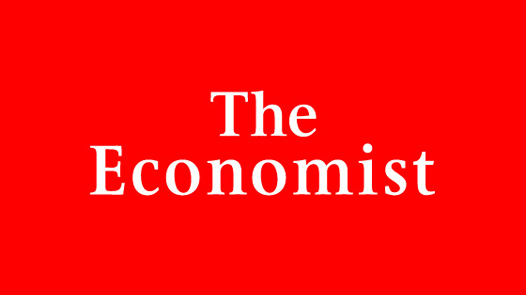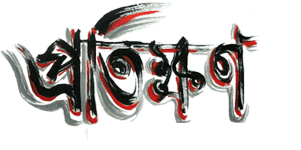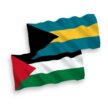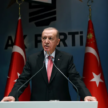জ্বলছে বাংলাদেশ, খাদের কিনারে বাংলাদেশ
আন্তর্জাতিক ডেস্ক, প্রতিক্ষণ ডটকম
 ‘জ্বলছে বাংলাদেশ’, ‘খাদের কিনারে বাংলাদেশ’, ‘আরো খারাপের দিকে যাচ্ছে বাংলাদেশ’।
‘জ্বলছে বাংলাদেশ’, ‘খাদের কিনারে বাংলাদেশ’, ‘আরো খারাপের দিকে যাচ্ছে বাংলাদেশ’।
বাংলাদেশের চলমান রাজনৈতিক পরিস্থিতি নিয়ে লন্ডনের বিখ্যাত দি ইকোনমিস্ট পত্রিকা এমনটাই মন্তব্য করেছে।
পত্রিকাটি তাদের ৭ ফেব্রুয়ারির প্রিন্ট ভার্সনে শিরোনাম করেছে ‘শোডাউন ইন বাংলাদেশ অন ফায়ার’। আজ ৬ ফেব্রুয়ারি পত্রিকাটির অনলাইন ভার্সনে এ প্রতিবেদনটি দেয়া হয়েছে।
প্রতিবেদনটির অনুবাদ এখানে তুলে ধরা হলো:
৪৫ বছর বয়সী অমূল্য চন্দ্র বর্মন। পেশায় রিকশাচালক। গত মাসে বাংলাদেশের উত্তরাঞ্চলে নিজের গ্রামের বাড়ি যাওয়ার উদ্দেশে বাসে উঠেছিলেন তিনি। কিন্তু, এখন তার ঠাঁই হয়েছে রাজধানী ঢাকার একটি হাসপাতালের বার্ন ইউনিটে। তিনি যে বাসে উঠেছিলেন, তাতে ছুঁড়ে মারা হয় পেট্রলবোমা। তার কোলের ওপর থাকা ব্যাগে গিয়ে পড়ে বোমাটি।
বোমায় তার মুখ ও হাত জ্বলে যায়। ব্যাগে ছিল এক মাসের জমানো টাকা। সব পরিণত হয় ছাইয়ে। তবে সান্ত¡না একটাই অন্তত অমূল্য বেঁচে আছেন। এ সপ্তাহে বাংলাদেশের পূর্বাঞ্চলে একটি বাসে পেট্রলবোমা হামলায় ৮ জন প্রাণ হারিয়েছেন। সব মিলিয়ে বাংলাদেশ জাতীয়তাবাদী দলের (বিএনপি) ডাকা এক মাসব্যাপী চলা অবরোধে প্রায় ৬০ জন প্রাণ হারিয়েছেন।
বিএনপি নেত্রী বেগম খালেদা জিয়া, যিনি দুই মেয়াদে দেশের প্রধানমন্ত্রীর দায়িত্ব পালন করেছেন, তাকে ঢাকার দলীয় কার্যালয়ে আটকে রাখা হয়েছে। এদিকে সড়ক, রেলপথ ও পানিপথে অবরোধ দেশকে অচল করে দিয়েছে। অবরোধে অচলাবস্থার ওপর দেশব্যাপী হরতালও পালন করেছে বিএনপি।
গত ৫ই জানুয়ারির জাতীয় নির্বাচনের বর্ষপূর্তি ঘিরে এ অস্থিরতার সূত্রপাত। বিক্ষোভ আন্দোলন শুরুর পর থেকে বিরোধী দলের ১০ হাজারেরও বেশি কর্মীকে আটক করা হয়েছে। বিএনপি’র অধিকাংশ নেতা জেলে, নির্বাসনে বা পলাতক রয়েছেন। এ সপ্তাহে সরকার সাময়িকভাবে খালেদা জিয়ার কার্যালয়ের বিদ্যুৎ ও ইন্টারনেট সংযোগ বিচ্ছিন্ন করে দিয়েছিল। অবরোধ প্রত্যাহারে বাধ্য করাতে এ চাপ সৃষ্টি করা হয়েছিল বলে অনুমেয়।
কিন্তু, খালেদা জিয়া এর শেষ দেখার ব্যাপারে দৃঢ়প্রতিজ্ঞ বলেই মনে হচ্ছে। বাংলাদেশ অকার্যকর দুই দলীয় ব্যবস্থায় ভুগছে, যেখানে দুই নেত্রী যাদের ‘ব্যাটলিং বেগমস’ হিসেবে আখ্যায়িত করা হয়, তারা দেশের মূল্যে নিজেদের বংশানুক্রমিক প্রতিহিংসায় লিপ্ত। ২০০৯ সালের শুরু থেকে আওয়ামী লীগ ক্ষমতায় রয়েছে।
দলটি অধিকাংশ ক্ষমতা কুক্ষিগত করেছে এবং বিএনপির জন্য ক্ষমতায় যাওয়া অসম্ভব করে তুলেছে। সেটা করতে আওয়ামী লীগ নিরপেক্ষ তত্ত্বাবধায়ক সরকার ব্যবস্থার বিলোপ ঘটিয়েছে, যাদের তত্ত্বাবধানে নির্বাচন সম্পন্ন হতো। দলটি বিএনপির নেতাদের হয়রানি করেছে ও প্রধান বিরোধী দলের জোটভুক্ত সর্ববৃহৎ দল জামায়াতে ইসলামীর বিরুদ্ধে প্রতিবন্ধকতা সৃষ্টি করেছে।
এখন সরকার দাবি করছে বিএনপির অগ্নিসংযোগ, ধ্বংসযজ্ঞ ও সন্ত্রাসী কর্মকাণ্ডের বিরুদ্ধে লড়াইয়ে নেমেছে। বিরোধী দলের অভিযোগ, সরকার একদলীয় রাষ্ট্র প্রতিষ্ঠার চেষ্টায় লিপ্ত। উভয় দলেরই যুক্তি রয়েছে। অবস্থাদৃষ্টে মনে হচ্ছে, খালেদা জিয়া এখন দেশকে এমন এক অবস্থায় দাঁড় করাতে চান, যেখানে সেনাবাহিনী হস্তক্ষেপে বাধ্য হয়।
এটা তারা নাও করতে চাইতে পারে। তারা তাদের সুনাম এবং জাতিসংঘে শান্তিরক্ষী মিশনে লোভনীয় চাকরির ব্যাপারে সজাগ। পশ্চিমা রাষ্ট্রগুলো যদি তাদের কর্মকা-ে ক্ষুব্ধ হয় তবে জাতিসংঘে তাদের চাকরির ব্যাপারে সংকট তৈরি হতে পারে। ২০০৭ সালে জেনারেলদের সমর্থনে দু’ বছরের জন্য টেকনোক্রেট সরকার প্রতিষ্ঠিত হয়। তবে পরে রাজনীতি আবার আগের অবস্থায় ফিরে যায়।
বিএনপির সড়ক অবরোধ ও সহিংসতা এবং সরকারের দমন-পীড়ন আরও খারাপের দিকে যাচ্ছে। এ অবস্থায় সেনাবাহিনী আগে বা পরে হস্তক্ষেপে বাধ্য হতে পারে। সরকার মানতে চাইছে না যে তারা কোন রাজনৈতিক সঙ্কট মোকাবিলা করছে। বরং, এটাকে আইন-শৃঙ্খলাজনিত সাধারণ সমস্যা হিসেবে চিহ্নিত করছে তারা। নির্বাচনের ডাক দিতে তারা একেবারেই চাইবে না। রাজনীতি ভেঙে পড়েছে। অমূল্য চন্দ্র বলছিলেন, আমাদের মতো গরীবরা কোন রাজনৈতিক দলের নয়। তা সত্ত্বেও, আমরা দুই দলের সহিংসতার ভয়াবহ শিকার।
দি ইকোনমিস্টের ইংরেজি প্রতিবেদনটি এখানে হুবহু তুলে ধরা হলো:
Showdown in Bangladesh
On fire
A country on the brink
Feb 7th 2015 | DHAKA |
WHEN Amulya Chandra Barman, a 45-year-old rickshaw-puller, boarded a bus in Dhaka last month, it was to go home to his village in the north of Bangladesh. Instead, he ended up in the burns unit of a hospital in the capital. A bomb was thrown into the bus, landing on the bag on his lap. His face and hands were burnt. The bag—holding a month’s savings in cash—was reduced to ashes. He is at least alive. This week eight people were killed in a firebombing attack on a bus in eastern Bangladesh. In all, about 60 people have died in a month-long transport blockade called by the main opposition, the Bangladesh Nationalist Party (BNP).
The BNP’s leader, Khaleda Zia, who has twice served as prime minister, has been confined to a party office in Dhaka, while the blockade of roads, railways and waterways has paralysed the country. This week the BNP added a national strike to the country’s agony. The trigger for the unrest was a banned protest to mark the anniversary on January 5th of last year’s farce of an election, in which the incumbent Awami League, led by the prime minister, Sheikh Hasina, was re-elected easily thanks largely to an opposition boycott. Since the protests began, more than 10,000 opposition activists have been detained. BNP leaders are mostly in jail, in exile or in hiding. This week the government temporarily cut the electricity and internet cables to Mrs Zia’s redoubt, presumably to put pressure on her to call off the blockade. But she seems determined to see this through to the end.
Bangladesh suffers a dysfunctional two-party system in which the two leaders, the “battling begums”, wage mutual vendettas at the country’s expense. For nearly a quarter-century they have rotated in office. The Awami League, in power since early 2009, has used its majority to entrench its power and make it impossible for the BNP ever to replace it. It has done so by abolishing the system under which neutral caretaker governments used to oversee elections, hounding BNP leaders and barring the BNP’s largest coalition partner, Jamaat-e-Islami, for its avowedly Islamic platform. Now the government claims to be combating acts of vandalism and terrorism by the BNP. The opposition accuses the government of trying to create a one-party state. Both sides have a point.
The personal animus between the begums has fostered a winner-takes-all politics in which the futility of habitually rigged elections forces the opposition on to the streets. Mrs Zia’s now seems to want to bring the country to such a pass that the army will feel obliged to intervene. It will be loth to do so. It is mindful of its reputation and of lucrative UN peacekeeping duties that might be jeopardised if the West took exception to its actions. And when in 2007 the generals stepped in to back a non-party “technocratic” administration for two years, the country’s politics ended back at square one anyway.
However, with the BNP’s transport blockade, and violence and repression worsening, the army may sooner or later feel compelled to act. Nothing suggests the government will accept it faces a political crisis rather than a simple law-and-order problem. In other words, it will be highly reluctant to call an election. Politics has broken down. As Mr Barman puts it: “We, poor people, do not belong to any political party…Yet we are suffering immensely from the conflict of two parties.”
প্রতিক্ষণ /এডি/জেসমিন











